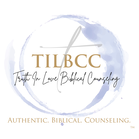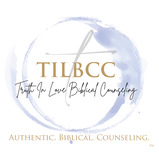Philosophy of Biblical Counseling
"And we urge you, brothers and sisters, admonish the rebellious, comfort the discouraged, strengthen the weak, be patient toward all." 1 Thessalonians 5:14
The Truth in Love Family of Ministries has adopted as their Philosophy of Biblical Counseling, Dr. David Powlison's, "Affirmations & Denials: A Proposed Definition of Biblical Counseling" (The Journal of Biblical Counseling • Volume 19 • Number 1 • Fall 2000). The document is downloadable just below the introductory paragraphs that follow):
~~~~~~~~~~~~~~~~~~~~~~~~~~~~~~~~~~~~~~~~~~~~~~~~~~~
The modem Christian has access to more knowledge, better material blessings, more disposable time, and more professional help than his predecessors. Yet frequently he is self-indulgent in his focus, confused in his concepts of life, and racked with inner pain.
The large number of books about personal wholeness in Christian bookstores should convince the observer that attempts are being made to solve these problems. But on closer inspection, he will find a lack of consensus. If he knows some theology he will also discern a nontheistic theory and practice, designed to correct human maladjustment, spliced into Biblical concepts. The result is a mixture of conflicting and often erroneous concepts. Jehovah is wedded to a golden calf.
The language in these books is often that of secular psychology and a culture that gauges life by the degree of pleasure and fulfillment it produces. In counseling, this expectation translates into the goal of helping clients or counselees feel good.
Psychology and counseling, at their core, deal with the nature of man. What a practitioner does is inextricably bound to his system of assumptions. Counseling theory and practice are by nature deeply theological. It is impossible to help people without implementing theological beliefs.
Thus, The Biblical Counselor faces two demands.
First, he must begin with the Word of God and a consistent grammatical, historical, and theological interpretation of it. He must not move from the study of man and his social context back to the Bible. A systematic understanding of the Word of God is his standard, not man and his social context.
Second, his methodology must be consistent with a theological interpretation of man and man's social context. He cannot choose, or allow his counselee to choose, goals-or methods to achieve those goals-that violate Biblical principles.
~~~~~~~~~~~~~~~~~~~~~~~~~~~~~~~~~~~~~~~~~~~~~~~~~~~
The modem Christian has access to more knowledge, better material blessings, more disposable time, and more professional help than his predecessors. Yet frequently he is self-indulgent in his focus, confused in his concepts of life, and racked with inner pain.
The large number of books about personal wholeness in Christian bookstores should convince the observer that attempts are being made to solve these problems. But on closer inspection, he will find a lack of consensus. If he knows some theology he will also discern a nontheistic theory and practice, designed to correct human maladjustment, spliced into Biblical concepts. The result is a mixture of conflicting and often erroneous concepts. Jehovah is wedded to a golden calf.
The language in these books is often that of secular psychology and a culture that gauges life by the degree of pleasure and fulfillment it produces. In counseling, this expectation translates into the goal of helping clients or counselees feel good.
Psychology and counseling, at their core, deal with the nature of man. What a practitioner does is inextricably bound to his system of assumptions. Counseling theory and practice are by nature deeply theological. It is impossible to help people without implementing theological beliefs.
Thus, The Biblical Counselor faces two demands.
First, he must begin with the Word of God and a consistent grammatical, historical, and theological interpretation of it. He must not move from the study of man and his social context back to the Bible. A systematic understanding of the Word of God is his standard, not man and his social context.
Second, his methodology must be consistent with a theological interpretation of man and man's social context. He cannot choose, or allow his counselee to choose, goals-or methods to achieve those goals-that violate Biblical principles.
|
| ||||


